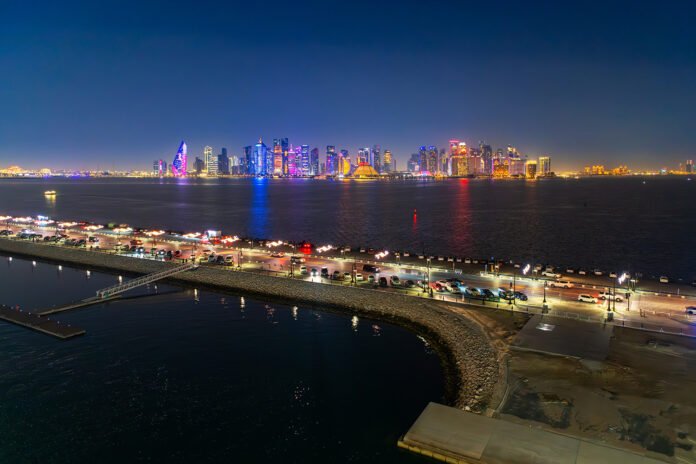Qatar’s ports continue to strengthen their role as a regional trade hub where Qatar ports growth drives trade expansion. Hamad, Ruwais, and Doha ports all showed strong increases in transshipment volumes. These gains highlight the country’s growing maritime capabilities.
Mwani Qatar reported that the three ports handled more than 124,000 twenty-foot equivalent units of containers in September, marking a 12 percent rise compared to the previous month. RORO shipments of vehicles grew by roughly 34 percent, while general and bulk cargo exceeded 45,000 tons. These numbers demonstrate how Qatar ports growth drives trade expansion.
The three ports also processed thousands of livestock shipments and building materials, showing their versatility. In total, 231 ships called at Hamad, Ruwais, and Doha ports, linking Qatar to markets across Asia, the Middle East, Africa, Europe, and the Americas. These connections reduce transit times and improve supply chain efficiency.
Qatar ports also support national economic diversification. By facilitating export and re-export operations, the ports help local industries reach foreign markets. The maritime sector further promotes tourism and strengthens the logistics industry.
Hamad Port, the country’s main gateway, continues to expand its influence. Strategic improvements in infrastructure enhance efficiency and capacity, helping Qatar maintain a competitive position in global trade. The port’s achievements reflect Qatar ports growth drives trade expansion while supporting national economic goals.
In addition, building materials, general cargo, and bulk shipments all saw notable increases. These trends illustrate the broader growth in Qatar’s maritime sector. Mwani Qatar also emphasizes digital transformation, sustainability, and innovation in logistics services. These efforts make operations more efficient and environmentally friendly.
Qatar’s ports also benefit from global partnerships and international events. Recently, the country participated in a major regional maritime congress, bringing together experts to discuss decarbonization, workforce development, and the future of logistics. This cooperation strengthens Qatar’s global trade network and reinforces the country’s economic diversification strategy.
By combining infrastructure upgrades, strategic planning, and technological adoption, Qatar ensures its ports remain competitive and capable. The government and private sector work together to enhance capacity, promote exports, and attract foreign investment. These steps highlight how Qatar ports growth drives trade expansion while benefiting the wider economy.
Looking ahead, Qatar plans to continue improving port operations and maritime services. The focus remains on efficiency, sustainability, and supporting local industries. The ports will keep connecting global markets and boosting economic opportunities across the country.


